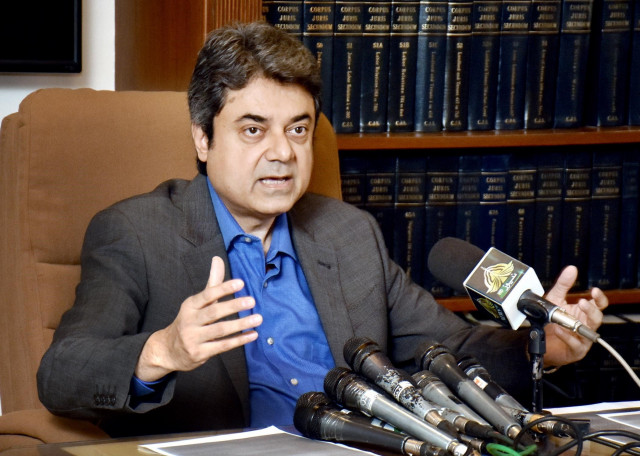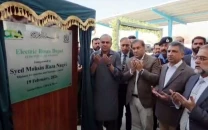Constitutional Bench pores over meaning of super tax
Senior counsel Dr Farogh Naseem to continue his argument

Senior counsel Dr Farogh Naseem has argued that super tax is not an additional taxa contention with which Supreme Court judge Jamal Khan Mandokhail has disagreed.
The five-member constitutional bench (CB) of the Supreme Court, headed by Justice Aminuddin Khan, on Thursday resumed hearing of petitions filed against imposition of the super tax.
During the hearing, Justice Mandokhail asked whether other high courts had given rulings on the amendment to Section 99D of the Income Tax Ordinance.
Dr Naseem replied that the Sindh High Court had dismissed the petitions, while cases were still pending before the Islamabad High Court and Lahore High Court.
He pointed out that, as of today, banks were paying 43% in taxes, and with the 10% super tax added, the rate reached 53%. He further submitted that while currently the burden was on banks, the amendment actually mentioned all sectors.
"Good, bad, or even corrupt... it is these very industrialists who keep the wheels of the economy turning. Because of this situation, many industrialists have already shifted their factories to various countries in Africa," he added.
The counsel contended that if the courts failed to provide relief to taxpayers, they would be left helpless, and the loss would ultimately affect everyone.
The discussion also touched upon the importance of parliament and the Constitution.
Justice Mandokhail remarked that the Constitution itself was framed by parliament, while Dr Farogh Naseem argued that in Pakistan, the Constitution holds greater power than parliament, though internationally parliamentary supremacy is recognized.
Justice Muhammad Ali Mazhar observed that Section 4C did not clearly state anything about the imposition of an additional tax: "Had it been written explicitly, there would have been no issue."
Naseem agreed that if those words had been there, the matter would have been clear. Continuing his arguments, he said the moment an addition is made, the super tax automatically applies.
Justice Mazhar responded that the very term "super tax" itself means an additional tax. "What else needs clarification?" he asked. The lawyer, however, disagreed, asking the judge to show a dictionary that defines super tax as an additional tax.
Justice Mandokhail insisted that the very meaning of the super tax was an additional tax. "What dictionary is required? Income has been defined, so there is no need for a separate definition of super tax." He further noted that it is written that super tax is a separate tax. "So this does not amount to double taxation."
Dr Naseem maintained that under entries 55, 56, and 58, the super tax was recognized as an independent levy. "But since it is not explicitly written as separate now, it loses that independence," he argued.
Subsequently, the hearing was adjourned until today. Before adjournment, the counsel asked about the scheduling of the hearings for next week.
The bench ruled that super tax cases would take precedence, while hearings on petitions against the 26th Constitutional Amendment would be listed afterwards.























COMMENTS
Comments are moderated and generally will be posted if they are on-topic and not abusive.
For more information, please see our Comments FAQ